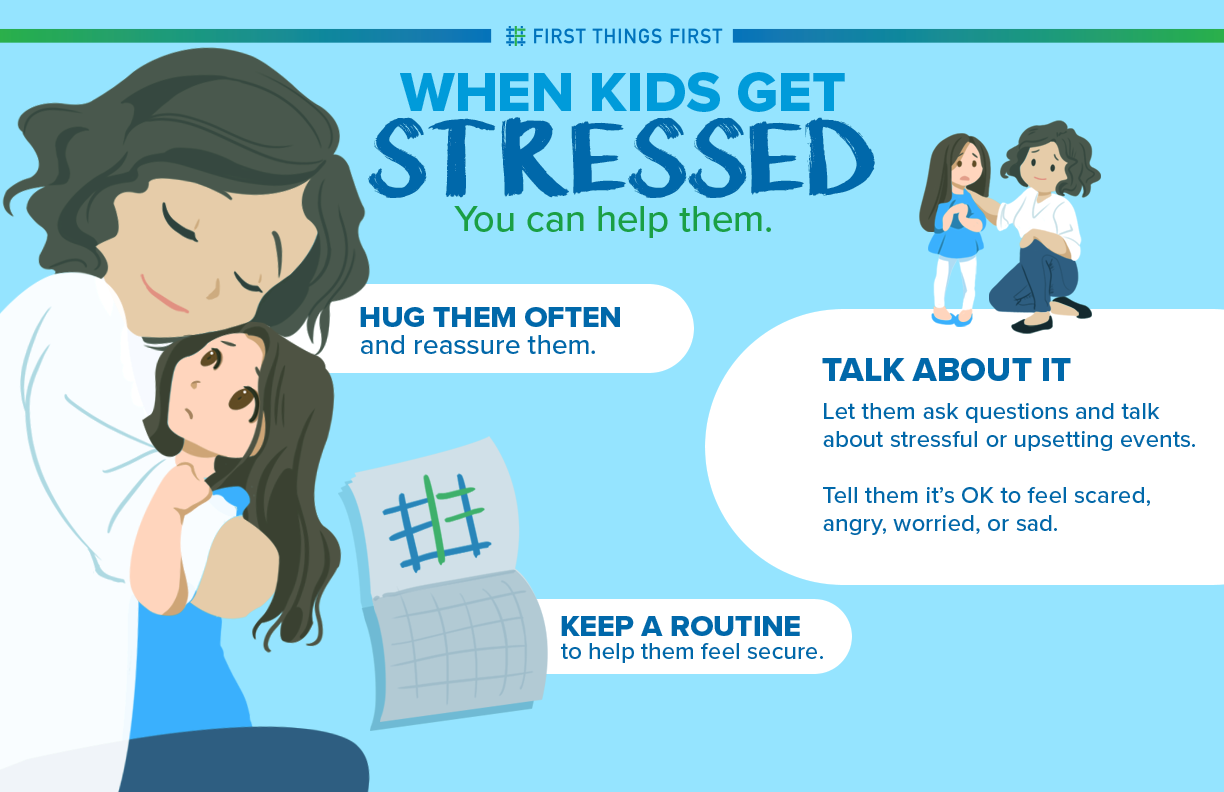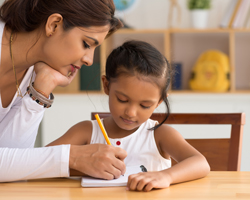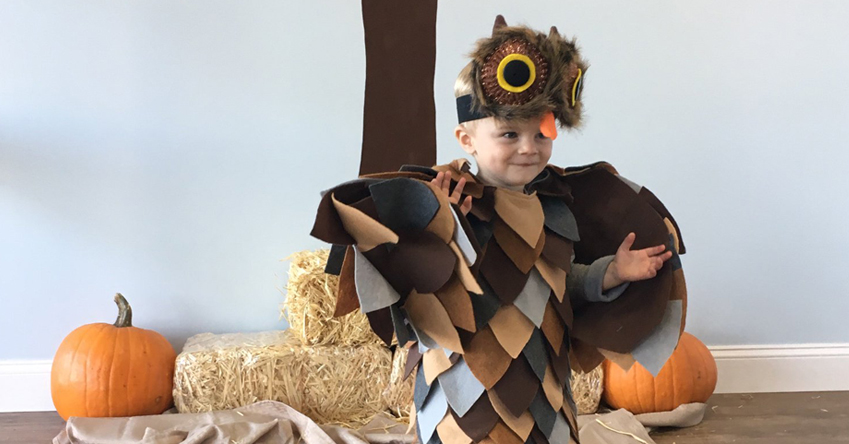Children ages 3 to 5 are learning many new skills. They play games, run and climb and start to learn letters and numbers. But they can have a hard time seeing things from someone else’s point of view. Although your child may seem more grown-up now, she still needs your help and guidance.

Encourage Creativity
- Make a place for your child to play with chalk, crayons, markers, paints and paper. Choose a place where she can make a mess.
- Tape newspaper or drawing paper to a washable floor.
- Give her washable markers, chalk or big, nontoxic crayons.
- Ask your child to tell you what she is making, and praise her efforts.
- For more craft ideas, visit Enchanted Learning.
Learning Social Skills
During play, children explore new feelings, ideas and skills. They create make-believe stories and games. They are learning how to play with each other, how to relate to adults and how to handle their anger and fears.
Your Child’s Fears
It is normal for young children to be fearful at times. They may be afraid of strangers or of being away from you. They may be afraid of dogs, loud noises or the dark. They are more likely to be fearful when there is change or stress in their lives. Their fears may cause nightmares. Let your child know that everyone is afraid at times and that you will keep her safe.
Checking on Your Child’s Development
Doctors check on the development of all children at well-child visits. They ask questions and use screening tools to measure how your child plays, learns, talks, acts, and moves. If you are worried that your child is not developing like others his age, tell his doctor. More thorough tests can be done.

THINGS YOU CAN DO
 Help Your Child Be Ready for School
Help Your Child Be Ready for School
- Encourage your child’s curiosity. Answer his questions with simple explanations.
- Support his interest in pretend play. Join in when he asks you to.
- Make sure your child has time to play with other children.
- Point out letters in signs, and go through the alphabet together.
- Use blocks, big puzzles and other toys to teach letters and numbers.
- Sing alphabet and counting songs together.
- Use books to talk about difficult topics, like anger or sharing.
- Ask your child’s doctor about Reach Out and Read Arizona.
Let Your Child Learn by Doing
- Encourage hands-on learning rather than watching TV.
- Include your child in everyday tasks, such as cooking and cleaning.
- Take her to interesting places, such as museums and zoos.
- Help her learn responsibility. For example, she can help pick up her toys, set the table or sort the laundry.
The First Things First Parent Kit was developed in partnership with Health Research for Action/UC Berkeley. © 2018 The Regents of the University of California. Additional video, graphic and other content © 2018 First Things First. All rights reserved.





